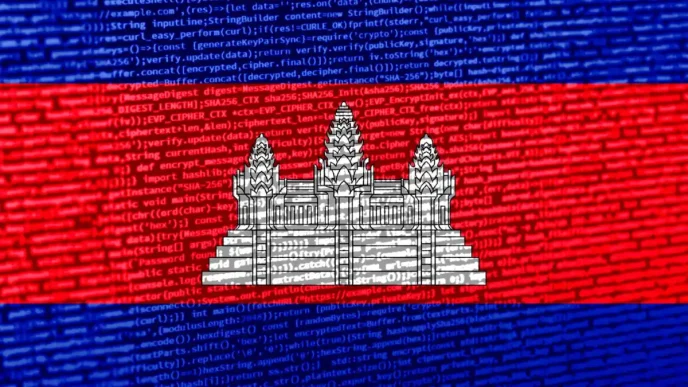In a landmark ruling, two former senior Thai prosecutors have been sentenced to jail by the Central Criminal Court for Corruption and Misconduct Cases in Bangkok. The verdict, delivered on April 22, 2025, found Netr Naksuk and Chainarong Saengthong-aram guilty of manipulating evidence to help Vorayuth “Boss” Yoovidhya, heir to the Red Bull energy drink fortune, evade prosecution in a fatal 2012 hit-and-run incident that shocked Thailand and sparked global outrage.
A Case of Impunity and Public Fury
The case stems from a tragic event on September 3, 2012, when Vorayuth, allegedly driving his Ferrari at high speed through the streets of Bangkok, struck and killed Police Sergeant Major Wichian Klanprasert. The officer, who was riding a motorcycle, was reportedly dragged a significant distance by the impact. Vorayuth is said to have fled the scene without offering assistance, setting off a chain of events that would expose deep flaws in Thailand’s justice system.
For years, the case languished amid allegations of interference and privilege. Vorayuth repeatedly failed to appear in court, citing reasons such as illness or overseas commitments. This led to prolonged delays, with several charges against him—including speeding and failing to stop after an accident—expiring under Thailand’s statute of limitations. By April 2017, after Vorayuth missed his eighth court appearance, an arrest warrant was issued. Reports indicate he had already fled the country by then, prompting Interpol to issue a red notice at the request of Thai authorities.
The turning point came in July 2020, when Thai prosecutors controversially dropped all remaining charges against Vorayuth. The decision triggered widespread public outrage, with many viewing it as a stark example of impunity for the wealthy and well-connected in Thai society. Protests erupted, and social media platforms buzzed with criticism, amplifying calls for justice for Wichian Klanprasert and accountability for those who enabled Vorayuth’s escape from prosecution.
Corruption at the Heart of the Investigation
Following intense public pressure and the emergence of new evidence—particularly regarding the speed of Vorayuth’s Ferrari at the time of the crash—the Office of the Attorney General announced a review of the decision to drop charges. This led to a deeper probe into the handling of the case, culminating in formal charges against eight individuals in September 2024. They were accused of violating the Thai Criminal Code and anti-corruption laws by tampering with investigative evidence to facilitate the dismissal of charges against Vorayuth.
On Tuesday, the court ruled at 9:30 a.m. that Netr Naksuk and Chainarong Saengthong-aram had breached Article 172 of the Corruption Prevention and Suppression Act. Specifically, they were found to have collaborated in altering witness statements and reducing the reported speed of Vorayuth’s vehicle in official documents. The manipulation of evidence was deemed a deliberate attempt to shield the Red Bull heir from accountability, undermining public trust in Thailand’s legal institutions.
While six other defendants were acquitted of similar charges, the court ordered all eight individuals to remain in custody pending a decision by the Appeal Court. As of the latest updates, they are seeking temporary release, though their current status remains unclear.
A Fugitive and a Ticking Clock
Vorayuth Yoovidhya, now widely regarded as a fugitive, has evaded capture since fleeing Thailand in 2017. Despite international efforts to locate him, his whereabouts remain unknown. The only charge still active against him is reckless driving causing death, which carries a statute of limitations until 2027. If he is not apprehended and prosecuted by then, he may escape legal consequences entirely for the death of Wichian Klanprasert—a prospect that continues to fuel public discontent.
The case has become a symbol of the broader struggle for equality under the law in Thailand, where wealth and influence often appear to outweigh justice. The sentencing of Netr and Chainarong marks a rare instance of accountability for those within the system who allegedly facilitated impunity, but for many, it is only a partial victory. Vorayuth’s continued absence from justice looms large over the proceedings, casting doubt on whether the full truth will ever be addressed.
Systemic Issues and Public Trust
The Red Bull heir case has exposed systemic issues within Thailand’s justice system, particularly the vulnerability of legal processes to external influence. Critics argue that the initial handling of the investigation—marked by delays, dropped charges, and alleged evidence tampering—reflects a broader pattern of preferential treatment for the elite. This perception has eroded public trust in institutions meant to uphold fairness and accountability.
Legal experts note that while the conviction of the two prosecutors is a step forward, it does little to address the structural inequalities that allowed the case to be mishandled for over a decade. “This ruling is significant, but it’s only part of the picture” said a Bangkok-based legal analyst who requested anonymity due to the sensitivity of the case. “The real test is whether the system can deliver justice for the victim’s family by holding Vorayuth accountable.”
Public sentiment, as reflected in discussions on platforms like X, remains overwhelmingly critical of the Thai elite’s ability to evade consequences. Many users have hailed the sentencing as a rare win against corruption, while others express frustration that Vorayuth himself remains out of reach. The case has also reignited debates about legal reforms, with activists calling for stricter oversight of prosecutors and harsher penalties for evidence tampering.
Regional and International Implications
Beyond Thailand, the case has drawn attention to similar issues of impunity across Southeast Asia, where wealth and political connections often intersect with legal outcomes. In countries like the Philippines and Indonesia, high-profile cases involving powerful families have similarly sparked public outrage, highlighting a regional challenge in balancing influence with accountability.
Internationally, the Red Bull brand has faced scrutiny over its association with Vorayuth, though the company has distanced itself from the personal actions of the heir. The global spotlight on the case, amplified by Interpol’s involvement, underscores the difficulty of pursuing justice across borders when wealth and resources are leveraged to avoid prosecution.
The financial aspects of the case also bear mentioning. Legal proceedings and international manhunts come at a significant cost to Thai taxpayers, with estimates suggesting that millions of Thai Baht (hundreds of thousands in USD, based on exchange rates as of April 2025) have been spent on efforts to locate Vorayuth. For instance, costs associated with Interpol coordination and local investigations have reportedly included expenses of 5 million Thai Baht (US$140,000) over the past few years, though exact figures remain unconfirmed.
A Long Road Ahead
The sentencing of Netr Naksuk and Chainarong Saengthong-aram represents a significant, if incomplete, milestone in the long-running saga of the Red Bull heir hit-and-run case. For the family of Wichian Klanprasert, who have endured over a decade of grief and frustration, the ruling offers a measure of accountability for those who obstructed justice. Yet, the central figure in the tragedy—Vorayuth Yoovidhya—remains beyond the reach of Thai authorities, a stark reminder of the limits of legal recourse in the face of wealth and influence.
As the appeal process unfolds for the convicted prosecutors, and as the clock ticks toward the 2027 deadline for Vorayuth’s last remaining charge, questions persist about whether Thailand’s justice system can fully restore public faith. Will Vorayuth ever face trial for the death of Wichian Klanprasert? And can systemic reforms prevent such cases from recurring? For now, these remain open wounds in a nation grappling with the intersection of power, privilege, and the pursuit of justice.














